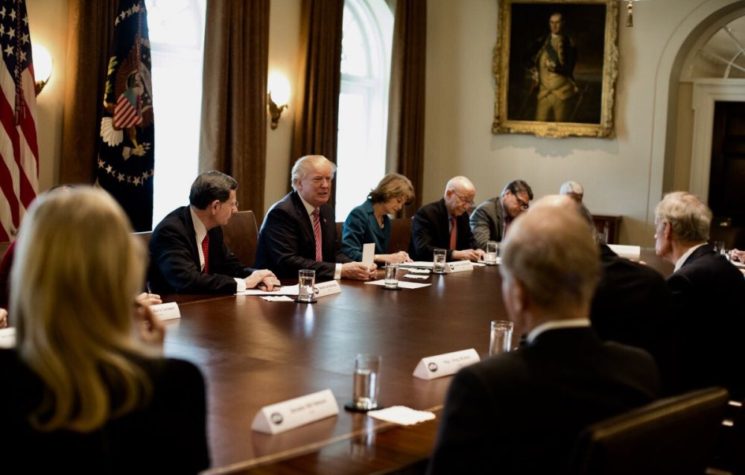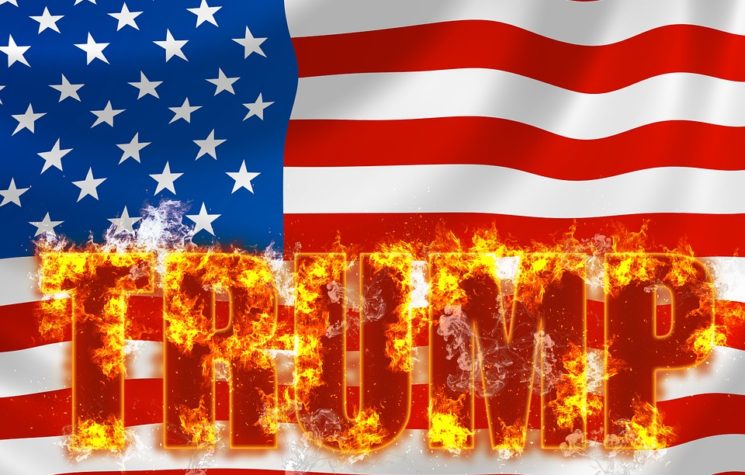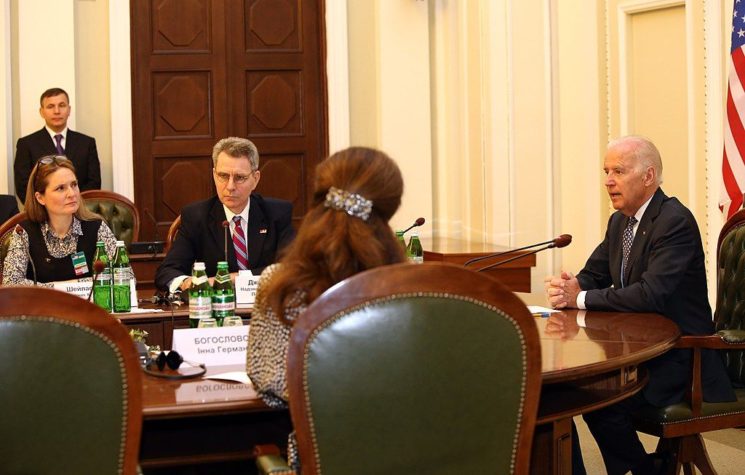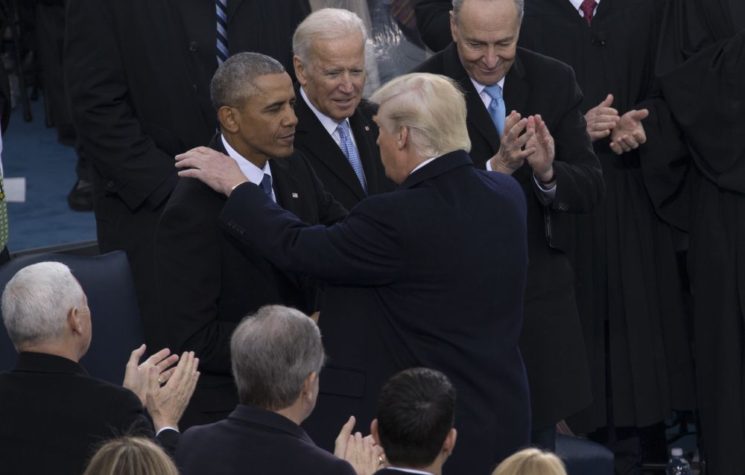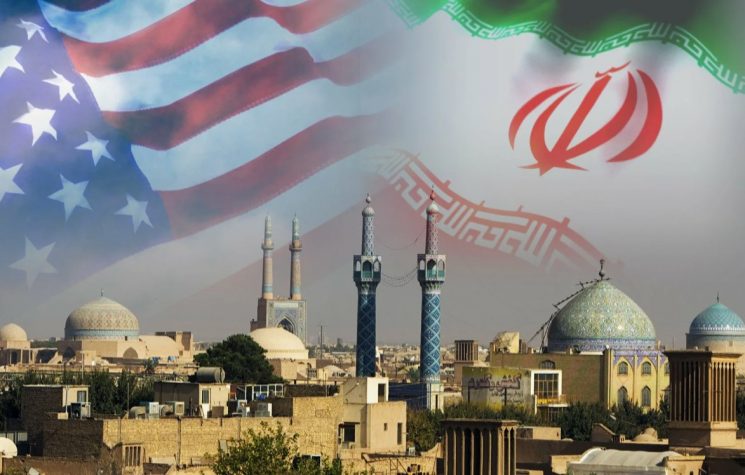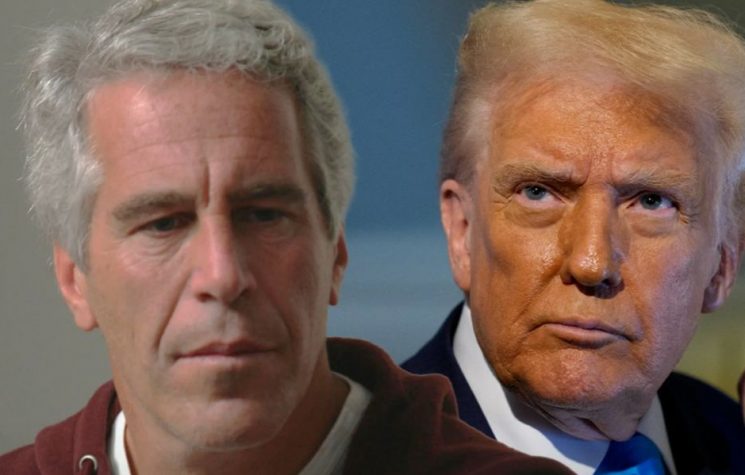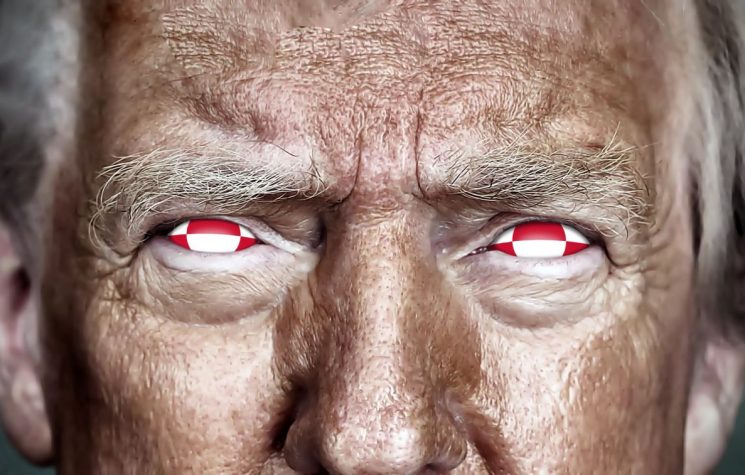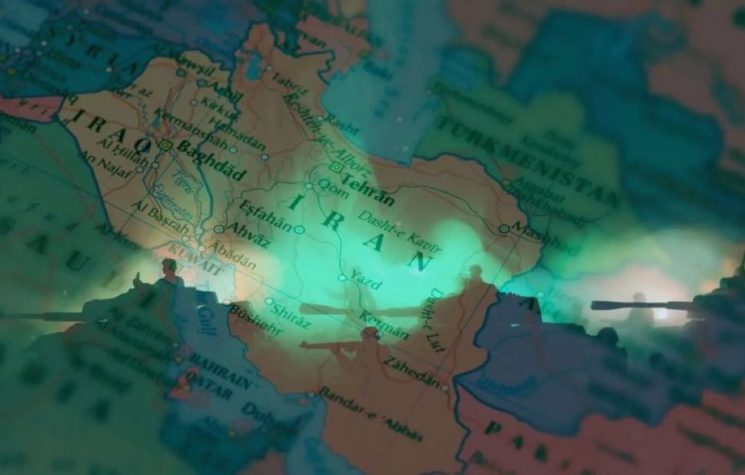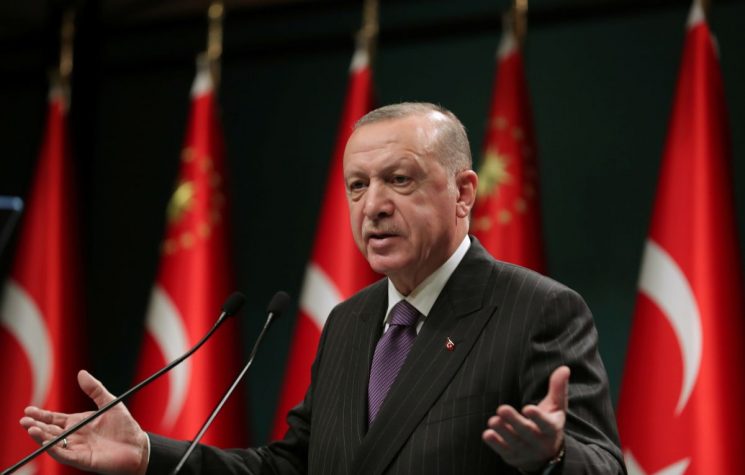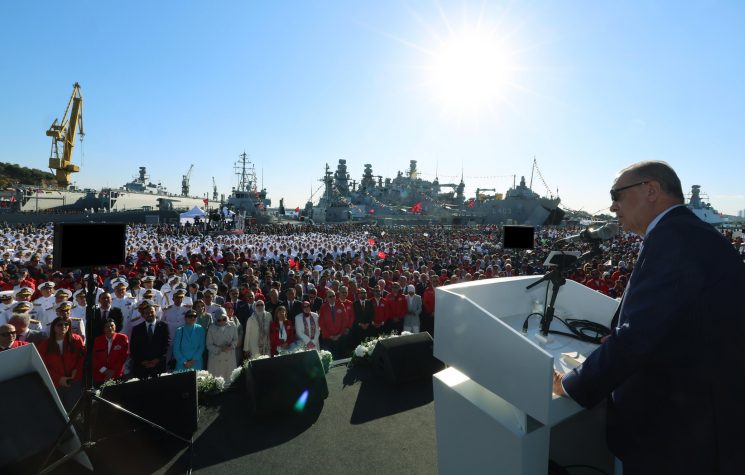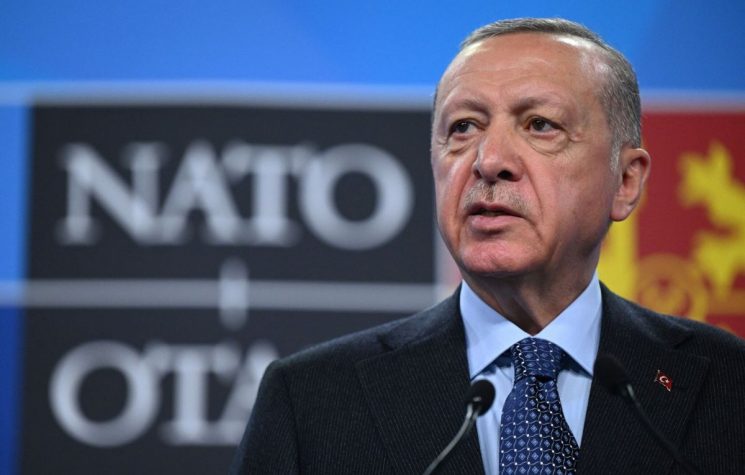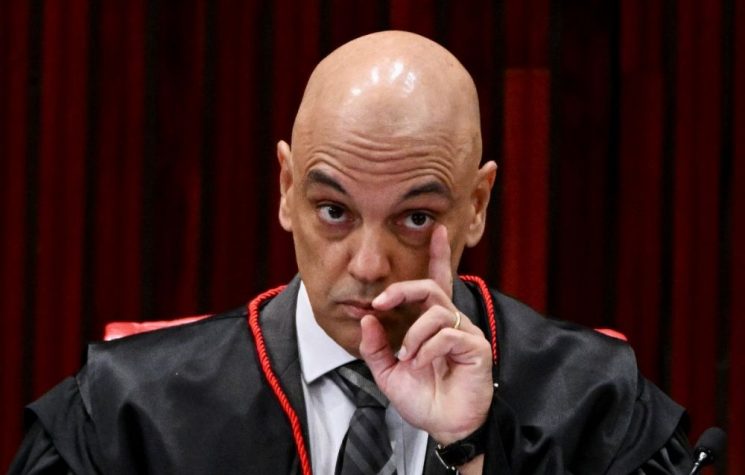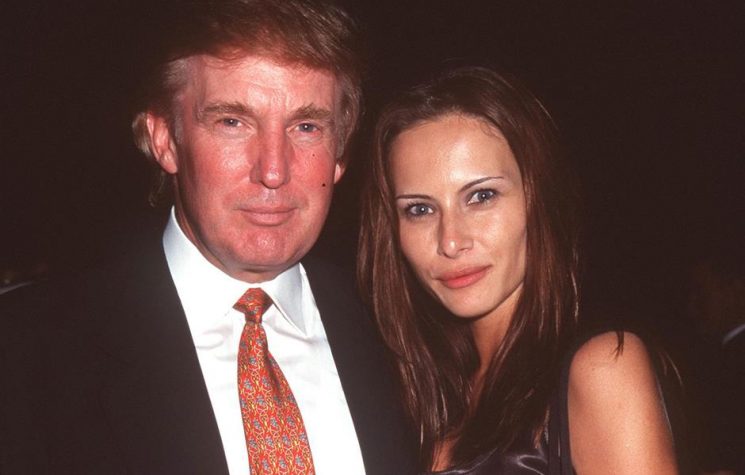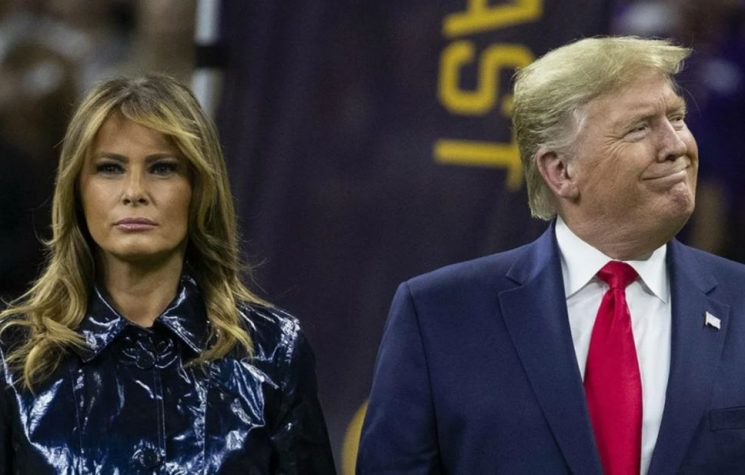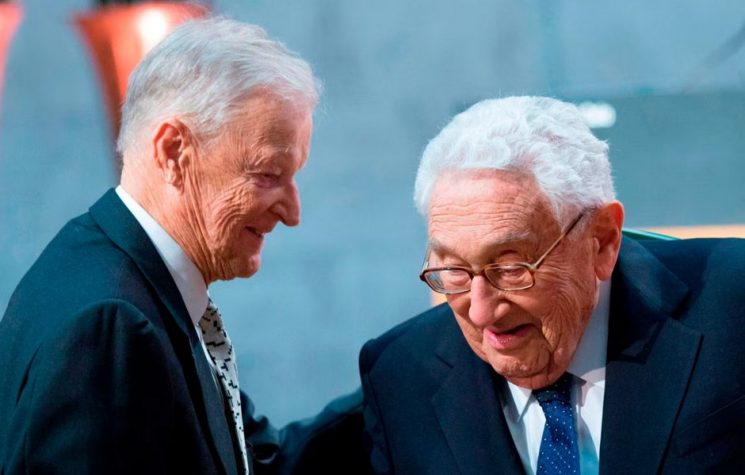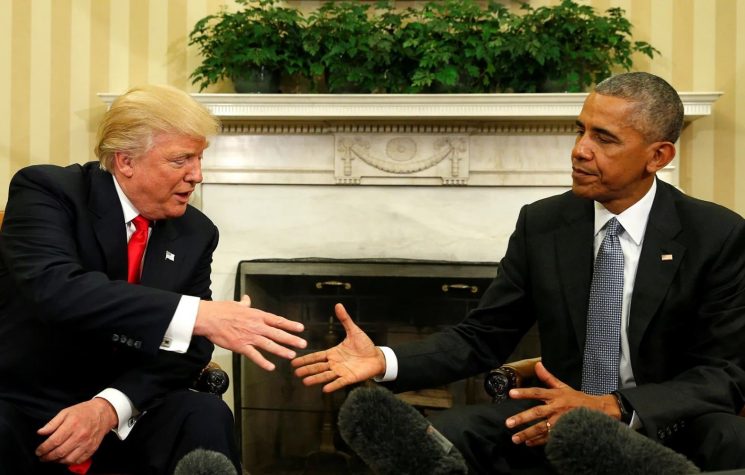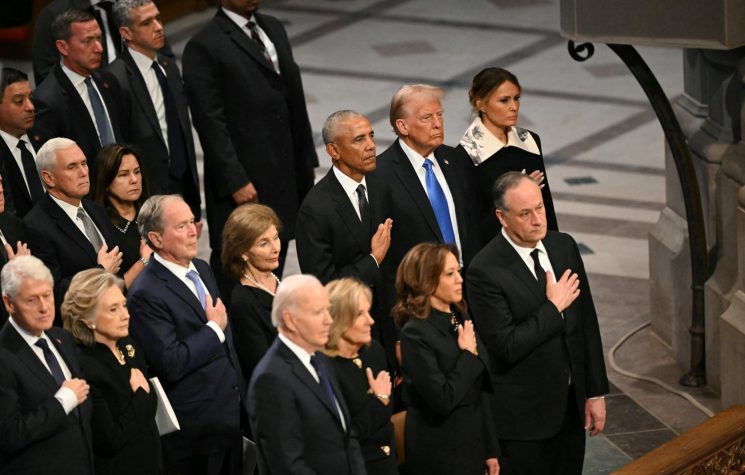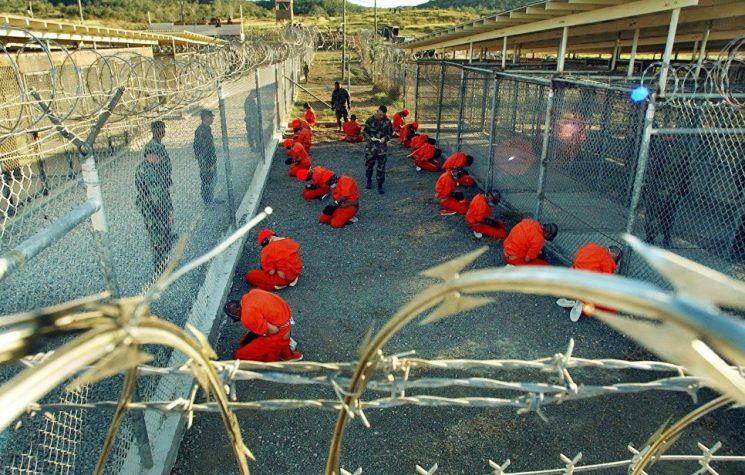Donald Trump’s stance towards the Turkish intervention in northern Syria has some (stress some) resemblance to his predecessor Barack Obama’s position on Ukraine. Obama like Trump, saw a reasoned basis for limiting US military involvement in Syria. In the background, is a degree of bipartisan (Republican and Democrat) opposition to this foreign policy approach.
Within reason, Obama articulated to Jeffrey Goldberg, that Ukraine means more to Russia than the former does to the US and EU. On that point, Obama added that Russia has a clear geographic advantage when it comes to military involvement in Ukraine. Hence, Obama’s reluctance to provide military aid to the Kiev regime. Likewise, Trump has essentially acknowledged Turkey’s role as a major regional power relative to Syria – specifically, Turkey’s border with Syria.
Throughout US mass media, some have given the impression that the US should’ve used its power to threaten Turkey to stay out of northern Syria. To some extent, this mindset exists towards other countries. In his final years, the former US National Security Adviser Zbigniew Brzezinski, pointedly said that while the US will remain a great power, it’ll nevertheless have (in the coming years) a diminished geopolitical status, on account of other power blocks having an increased ability to successfully influence their objectives.
This thought has been downplayed in a number of high profile situations. Instead, some faulty notions have been propped without the critical rebuking that they deserve.
Brzezinski’s noted view aside, throughout history, major powers have lost to lesser foes for reasons having to do with geography and will. (The American Revolution and Vietnam War being two such examples.) So, there’s ample reason for a superpower to carefully consider fighting a regional power in the latter’s backyard.
Kentucky Senator Mitch McConnell suggested that Trump’s withdrawal of US military personnel in northern Syria and subsequent Turkish move in that area, benefits the Syrian, Russian and Iranian governments. Damascus, Moscow and Tehran haven’t expressed support for the aforementioned Turkish incursion. The likes of McConnell downplay the clearly stated interest and action of the Syrian, Russian and Iranian governments, against ISIS in Syria – in conjunction with the view that the Turkish military advance into northern Syria might muddy this effort – given that Turkey and the Syrian Kurds fighting each other takes away from keeping the ISIS factor in check.
Seeing what has transpired, it’ll come as no great surprise for a possible understanding (official or otherwise) to be reached between the Syrian and Turkish governments. That scenario could eventually lead to a de-escalation of tension in Syria, along with a functioning accord between the Syrian Kurds and Damascus authorities. The Syrian refugee situation and the still incomplete elimination of ISIS are key issues to watch.
Diplomatically, the Syrian government is in a relatively strong position. The Turks probably prefer the Damascus authorities to the Syrian Kurds, with Syria’s Kurds preferring Damascus over Ankara.
Regarding Ukraine, the Johns Hopkins University School of Advanced International Studies, was the recent site of a top heavy idealistic anti-Russian and anti-Putin discussion, hosted by Charles Gati and dominated by David Kramer, who went unopposed. This gathering serves as an example of the kind of skewed views getting preferential treatment within prominent US based circles. The following concerns some (not all) of the inaccuracies stated at this event.
Early into his talk, Kramer incorrectly asserts that prior to 2014, there was no call in the West for having Ukraine in NATO. Refer to point 23 in the April 3, 2008 NATO Bucharest Summit Declaration stating: “NATO welcomes Ukraine’s and Georgia’s Euro-Atlantic aspirations for membership in NATO. We agreed today that these countries will become members of NATO.” This happened at a time when Ukraine was headed by the neocon and neolib preferred Viktor Yushchenko, who was succeeded by Viktor Yanukovych. In 2014, Yanukovych was essentially overthrown in a coup, after he signed an internationally brokered power sharing arrangement. Kramer and some others omit these realities. Instead, they offer the spin of a democratic process prevailing over undemocratic pro-Russian tendencies.
Far from perfect, Yanukovych didn’t take the anti-Russian position as those succeeding him and Yushchenko. At the same time, Yanukovych sought a balanced approach between what the EU and Russia preferred. Russia indicated a willingness to hold three way (Russia, EU and Ukrainian) talks on managing Ukraine’s economic development. In contrast, the EU took a zero sum game, their way or the highway attitude. Prior to Yanukovych getting overthrown, polling revealed that Ukrainian public opinion was pretty evenly split on choosing between the EU and Russian economic preferences for Ukraine.
The regime which immediately replaced Yanukovych included people who favored that Ukraine abrogate the agreement which granted a Russian military presence in Crimea. Following the overthrow of Yanukovych, there were a series of increased anti-Russian activities highlighted by yours truly in a July 7, 2014 commentary. Like it or not, there’s a pro-Russian element in Ukraine, which became understandably uncomfortable with some of the provocative acts taking place.
With these thoughts in mind and contrary to Kramer, the conflict in the former Ukrainian SSR more closely resembles a civil war than foreign aggression. He’s unable to factually substantiate that the majority of the Donbass rebels aren’t from the territory of the former Ukrainian SSR. On this particular, academics Paul Robinson and Serhiy Kudelia, take issue with Kramer.
Blaming Russia, Kramer brings up the shot down Malaysian airliner over eastern Ukraine. He omits the suspect investigatory process on that matter – thereby explaining the recently announced follow-up in Holland. Before the Malaysian airliner incident, some airlines on their own chose to not fly over the east Ukrainian war zone.
Kramer flippantly mentions Russia’s 2008 attack in Georgia without mention that it was the Georgian government which attacked the disputed former Georgian SSR territory of South Ossetia. When discussing this war at CSPAN televised Capitol Hill situated Russia bashing wonk fests, South Ossetia’s and Abkhazia’s preference for Russia over Georgia typically gets sidestepped.
Kramer and Gati exhibit an inaccurate bias concerning the Ukrainegate situation, covering the 2016 Democratic National Committee (DNC) collusion with the Kiev regime (to find dirt on the then Trump presidential campaign) and the suspect manner of the Bidens in Ukraine.
Upon critical overview, the denial of a DNC-Kiev regime collusion isn’t convincing. Factually, it isn’t well established that Joe Biden and his son Hunter didn’t behave in a hokey way in Ukraine. Journalist John Solomon, has diligently researched this matter with findings that warrant an investigation of the Bidens. The October 11 Duran discussion, provides further debunking insight on the claim that the Bidens have been reasonably cleared of any wrongdoing.
The opposition to Trump’s phone conversation with his Ukrainian counterpart lacks substance, thus explaining California Congressman Adam Schiff’s misrepresentation of that exchange. Schiff is on record for saying that he has proof of a direct collusion between Trump and the Russian government – something that isn’t followed up on during his frequent MSNBC and CNN appearances.
Kramer’s expressed distaste for Crimea’s reunification with Russia flies in the face of reality. His rehashing as fact of a supposed comment that Putin made about Ukraine not being a state remains suspect.
The Trump administration has noticeably increased US military assistance to the Ukrainian government – something that contradicts the image of Trump toadying to Russia. During Trump’s face to face meeting with Ukrainian President Volodymyr Zelensky, the US head of state expressed the hope that Russia and Ukraine will improve their relations – a desire sought by many in these two countries with close historical and cultural ties. Say what you want about Trump, on Russian related matters, he appears more reasonable than his neocon and neolib leaning critics, with their hot air innuendo, which hasn’t and ultimately will not weaken Russia.








